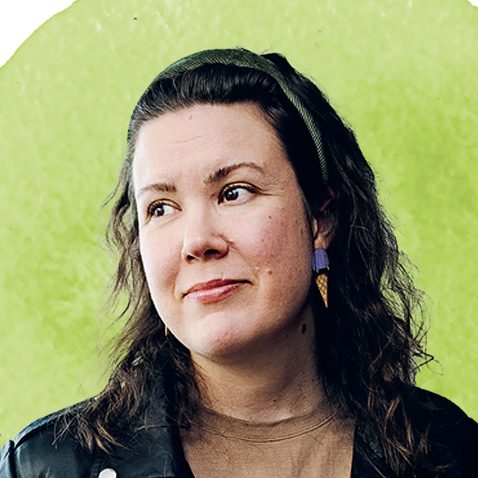That time of the month again – the experience of menstruation is universal, everyday life with it is not
“If you don’t have reliable period protection, you won’t want to come to school. I strongly share this experience with girls I have met in refugee settlements in Uganda”, writes Elisa Rimaila, Communications Specialist at FCA.
“DO YOU REMEMBER how it started? I only remember how thick and uncomfortable the first menstrual pads my mother gave me were. I didn’t dare move normally or lie on my back for fear of leaking. That same week my parents also gave me a Gameboy, a games console, which I used to play so much Tetris for the next week that I forgot about my period.
The experience of the onset of menstruation is something that most girls and women born into the world have in common. There is life before “them” and then this part that forces you to count life in about three-week chunks.
On a recent work-related trip to Uganda, I heard once again how menstruation is disrupting the schooling of too many girls. If there is no proper menstrual protection, school is a pain. I strongly share this experience with girls I meet in refugee settlements in Uganda. I was only 11 years old when I started my period, but I learned early on during my period to look at the back of my trousers in mirrors and windowpanes. I was afraid that blood would stain my clothes so that someone would see.
In Uganda, girls told me of the mocking songs sung by boys. They targeted classmates whose clothes were stained, revealing the fact they were menstruating. Some of the bullying is surely the result of ignorance on the part of teenage boys. Still, it is worth remembering the inequality that girls around the world face because of their periods.
Menstruation is still a taboo subject
IT IS LUDICROUS to think that every four weeks your period can prevent you from doing something as important as going to school. There are many reasons. Menstrual pads are too expensive, or otherwise unavailable for families to buy.
Or in many places, all sorts of beliefs about impurity are still associated with menstruation. The pressure these beliefs exert prevents girls and women from participating in normal daily life, for example, eating meals and sleeping nears family members, not to mention going to school or places of worship. Isolation not only causes feelings of hatred and rejection, but also real physical danger. In Nepal, for example, girls in so-called ‘Chhaupadi’ isolation die every year from snake bites or other accidents.
WHAT DID I SAY to the girls in the Rwamwanja refugee settlement who told me that they had been taunted by boys because of the bloodstains? I reminded them that menstruation is really about how incredibly strong we women are: we bleed a tremendous amount of blood, but we don’t die from it.
Although at the same time, I have to admit that I took some pills to delay the start of menstruation during my trip to Uganda. The thought of having my period during the trip is still, in my forties, quite unbearable. Avoiding periods is possible because I happen to be born in Finland and I can choose when my periods come to interfere with things that are important to me. Not everyone has that privilege.
Menstrual Hygiene Day is observed annually on May 28th. The day is dedicated to breaking taboos and raising awareness about the importance of good menstrual hygiene management (MHM).
